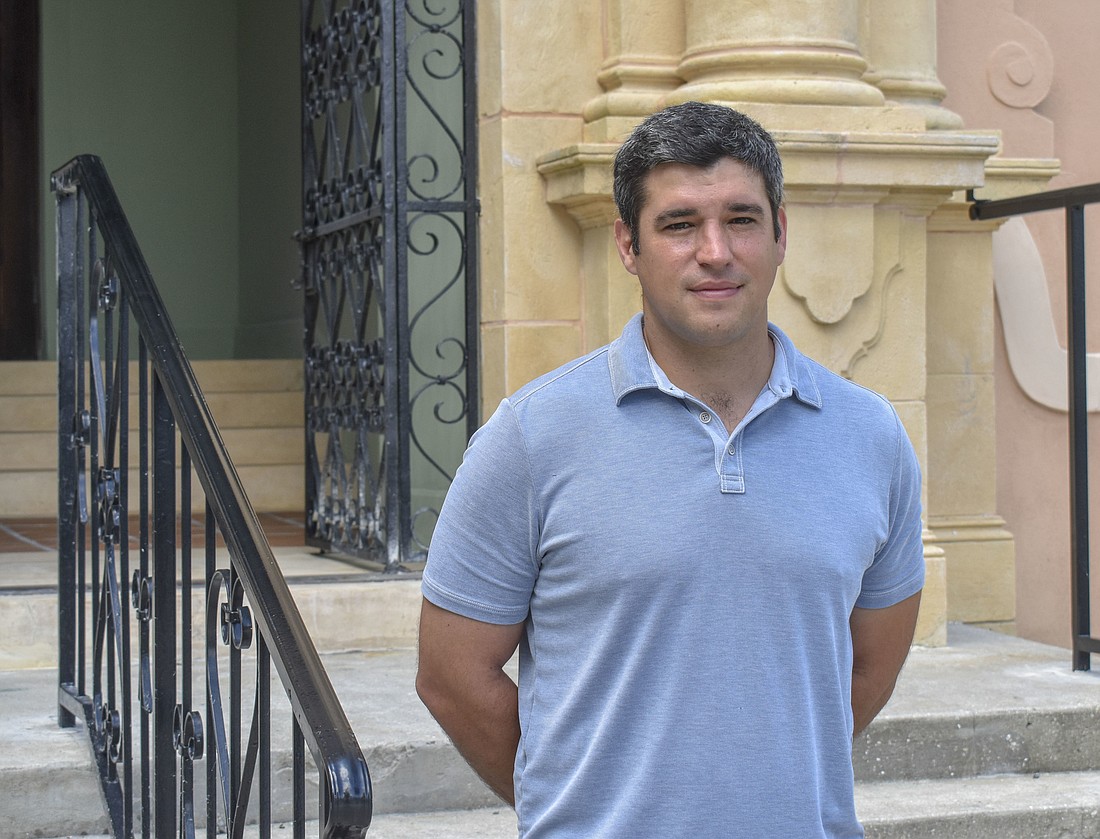- November 23, 2024
-
-
Loading

Loading

Born and raised in Sarasota, Bill Sterbinsky grew up with parents who taught him how to pay it forward. He knew from a young age that he wanted to serve, but it was 9/11 that put everything in perspective for him. Deciding to leave behind the Booker High School theater world, he enlisted in the U.S. Marine Corps at 17 years old after his emancipation. Now a lawyer and founding member of SRQ Vets, Sterbinsky reflects on what his time in the military meant and how freedom touches his life every day.
“I remember … seeing people jumping around and saying things and yelling. And I remember walking into a small dressing room, and this itty-bitty TV was on, and the [twin] towers were up there. One was burning, and we saw the second bird hit the second building. And we were just like, ‘What the heck are we watching?’ … Probably about 24 to 48 hours after that I was like: ‘All right. I gotta do something.’”
“The First Amendment — right to assemble, freedom of religion, freedom of speech, freedom of the press — I think is paramount. It allows us to reflect internally, and it allows us to question ourselves. Now the problem, though, is the human brain is a double-edged sword. It’s our greatest ally and our worst enemy. We will create our own problems through that First Amendment protection, but you can’t stop [the freedom of speech’s] need to remain; we just have to be careful of how we go forward.”
“All of us could rise to the same level of understanding, but it just depends on the avenues that we take to get there. My avenue happened to be the military, but my avenue [of understanding] wasn’t just the military. It began when I used to travel with my grandfather, who was an anthropologist in Central America. We used to see poverty; we used to see middle class — which is slim-to-none in those third-world countries — and then we would see the opposite side, the other 1%. So my thoughts and process began there — of what freedom is, what rights are and what the Bill of Rights are. It then furthered and grew stronger when I went in the military service.”
“All you can think about in that moment when you’re overseas is dying for your brothers. You don’t realize what you’re dying for; you just know that you’re dying for them.”
“For those young people that find themselves making that decision [to serve] yesterday, today or tomorrow, I would just tell them to stay focused on their goals. Everything else is a mere distraction. And that you’re never alone because there’s always like-minded people that have experienced the same human emotion you have. It’s just that maybe their story to get to that emotion was a little bit different.”
“We have a country over here that is able to speak freely, give credence to its members of society instead of subjugate them and listen to [all] genders. To me, that’s freedom.”